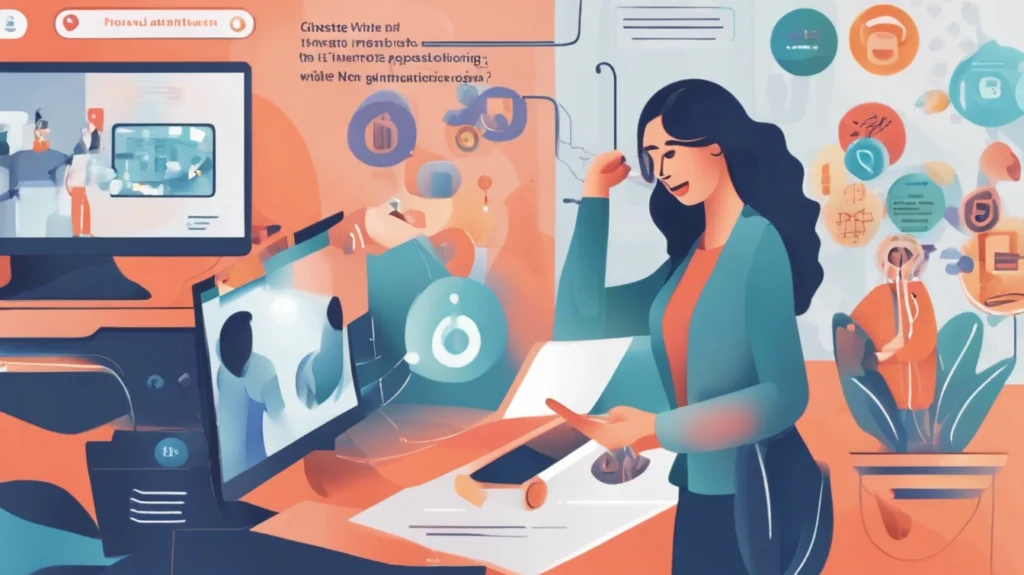In the world of marketing, artificial intelligence (AI) has quickly moved from being a buzzword to an essential tool. While large corporations often have the budget and resources to dive head-first into AI, small businesses tend to face more significant hurdles. From cost concerns to fears of losing that personal touch, many small businesses find the idea of adopting AI intimidating. However, AI, when implemented correctly, can drive growth while preserving the human connection at the heart of every small business.
Let’s explore some common challenges small businesses face when trying to integrate AI into their marketing strategies and how a human-first approach can help overcome them.
1. Budget Constraints
Challenge:
For many small businesses, the cost of AI tools and platforms can be daunting. AI software, data analysis tools, and automation solutions often come with a price tag that seems out of reach.
Solution:
Start small and scale as needed. You don’t need to invest in high-end solutions right away. Many AI tools offer free trials or affordable, entry-level options. Tools like HubSpot or Mailchimp provide AI-powered marketing automation at price points accessible to small businesses. As you see the ROI, you can gradually expand your AI toolkit.
Human-First Approach:
Use AI to free up your time for more human-centered activities. Instead of replacing your human touch, AI should enhance it. For example, automating email marketing means you have more time to engage personally with your customers, whether that’s through social media, in-person events, or personalized customer service.
2. Fear of Losing the “Personal Touch”
Challenge:
One of the biggest fears small businesses have is that by adopting AI, they will lose the personal connection they have worked so hard to establish with their customers. Many businesses built their brand around direct, authentic relationships with their audience, and AI seems cold in comparison.
Solution:
AI doesn’t need to replace personal relationships; it can enhance them. For example, chatbots can handle basic customer service queries, allowing your team to focus on more complex interactions. AI can also analyze customer data to provide more personalized content and product recommendations, making customers feel even more valued and understood.
Human-First Approach:
Keep the human at the center of your AI strategy. Use AI-driven insights to inform personalized content, offers, and customer interactions. For instance, instead of sending generic email blasts, use AI to segment your audience and send highly personalized emails that feel like they were written specifically for the recipient.
3. Lack of Expertise
Challenge:
Many small business owners feel they lack the technical expertise to implement AI solutions. The learning curve can be steep, and hiring in-house experts can be expensive.
Solution:
Outsource strategically or invest in low-code/no-code solutions. Platforms like Zapier and Hootsuite integrate AI without requiring in-depth technical knowledge. Alternatively, hiring an AI marketing agency (like Avenue9!) can provide the expertise needed without the long-term cost of full-time employees.
Human-First Approach:
Prioritize collaboration over automation. When outsourcing AI work or using a platform, ensure that your values and brand message remain central. Be involved in the AI strategy so that the human touch is always present, even in the background. Your audience should feel that there is a thoughtful human behind every AI interaction.
4. Data Privacy Concerns
Challenge:
Small businesses often worry about the ethics of AI, especially regarding data privacy. Consumers are becoming increasingly aware of how their data is used, and breaches of trust can damage a small business’s reputation.
Solution:
Transparency is key. Communicate clearly with your customers about how their data is being used and how AI improves their experience. Always follow regulations like GDPR or CCPA to ensure compliance with data privacy laws. Prioritize the security of customer information by using trusted AI tools with strong privacy protections.
Human-First Approach:
Use AI to build trust rather than erode it. AI can help you understand customer preferences and provide them with more tailored experiences. When customers see that AI is being used to benefit them (not just to benefit the business), they’re more likely to view your use of their data as a positive rather than an invasion of privacy.
5. Difficulty Integrating AI with Existing Systems
Challenge:
Many small businesses operate with legacy systems that don’t easily integrate with AI tools. The fear of disruption during integration can prevent businesses from adopting AI.
Solution:
Look for AI tools that are designed to integrate seamlessly with existing systems. Many modern AI platforms, such as Shopify or Salesforce, offer plugins and APIs that allow for relatively smooth integration without overhauling your entire tech stack.
Human-First Approach:
Make sure the integration process is customer-centric. Don’t disrupt the customer experience during implementation. For example, if you’re introducing a chatbot, ensure it works alongside your existing customer service team rather than replacing it outright. This maintains the human touch while gradually introducing AI improvements.
6. Overwhelming Choice of AI Tools
Challenge:
The sheer number of AI tools available can be overwhelming. It’s difficult to know which will work best for your specific needs.
Solution:
Focus on your business goals and choose AI tools that directly support them. Start by identifying one or two areas of your marketing that would most benefit from AI—whether it’s customer segmentation, lead generation, or content automation—and then research tools that address those specific needs.
Human-First Approach:
Maintain clarity on your business’s mission and values. Use AI to streamline processes that don’t directly require human interaction, so that your team can focus on what they do best—building relationships, nurturing creativity, and delivering excellent customer service.
Embracing AI Without Losing Your Humanity
The future of marketing is undeniably intertwined with AI, but that doesn’t mean losing the personal touch that makes small businesses unique. The key is balance: using AI to automate and optimize where it makes sense, while maintaining the warmth, authenticity, and trust that are at the core of your business. A human-first approach ensures that, as AI takes care of the tedious tasks, you and your team can focus on what truly matters—your customers.
In the end, AI is a tool, not a replacement for human connection. With thoughtful integration, you can create a marketing strategy that leverages AI’s efficiency while keeping your business personal, authentic, and human-centered.
At Avenue9, we specialize in helping small businesses leverage AI-powered marketing strategies that enhance human connection. Our human-first approach ensures your business’s unique personality shines through while AI takes care of the heavy lifting.
Ready to grow your business with AI? Reach out today for a consultation.


